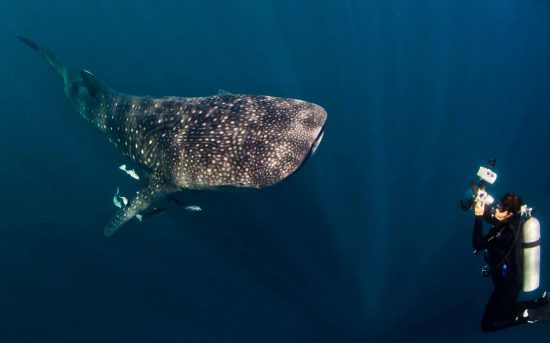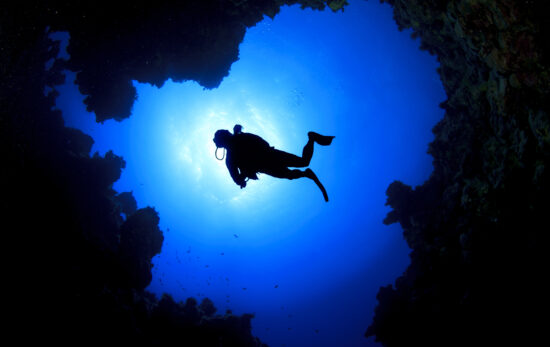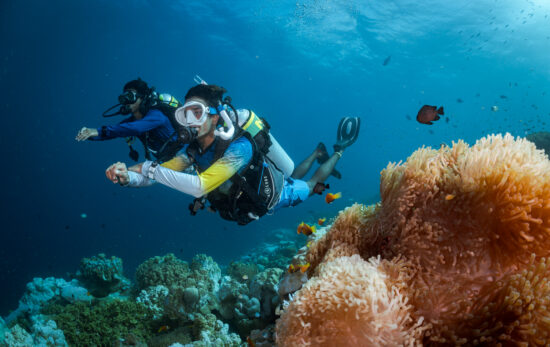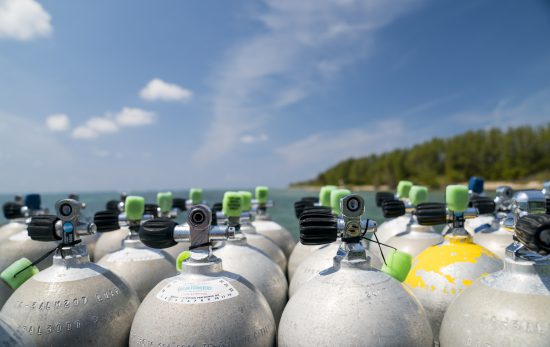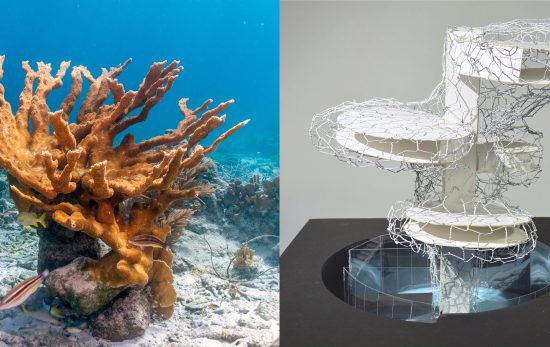The PADI Master Scuba Diver™ (MSD) rating is often described as the black belt of scuba diving, because it’s the highest rung on the recreational diving ladder. Fewer than 2% of divers ever become PADI Master Scuba Divers. Here’s how to apply for the Master Scuba Diver rating.
PADI Master Scuba Diver Requirements
Master Scuba Diver is a rating, not a scuba course or certification. To become a PADI Master Scuba Diver you must:
- Be at least 12 years old
- Have a Rescue Diver or Jr. Rescue Diver certification
- Complete 5 PADI Specialty Diver certifications
- Show proof of 50 logged dives
In case you’re thinking, “A 12-year-old Master Scuba Diver? Really?” Yes, there are kids who become Jr. Master Scuba Divers at age 12. It’s an astonishing achievement. At age 12, I was just sitting at home watching music videos and trying to learn dance moves.
How to Apply for Master Scuba Diver
If you’re interested in becoming a Master Scuba Diver, speak to a PADI Instructor, Dive Center or Resort. Many offer MSD training packages.
To apply for the Master Scuba Diver rating, you will need the following certifications:
- Open Water Diver (or Junior Open Water Diver)
- Advanced Open Water Diver (or Junior Advanced Open Water Diver)
- Rescue Diver (or Junior Rescue Diver)
- 5 PADI Specialties or PADI Distinctive Specialties
- 50 logged dives
Already have 50 logged dives and the certifications above? Contact any PADI Instructor or PADI Dive Shop, and they will review your certifications and logbook before submitting your application to PADI.
Any Master Scuba Diver applications received before the end of 2024 will be processed by PADI at no charge.
NOTE: PADI will accept certifications from other training organizations for the Open Water Diver, Advanced Open Water Diver and Rescue Diver requirements, but the five specialty certifications must be issued through PADI. If you submit any non-PADI certifications to meet the Master Scuba Diver prerequisites, please bring your certification cards to your PADI Dive Shop or Instructor for verification.
How Long Does It Take To Become a Master Scuba Diver?
A Master Scuba Diver rating can take a few weeks or a few months, depending on what certifications you already have and how frequently you dive.
Short on time? Here are a few ways to rack up certifications fast:
1. Add Enriched Air. You can earn the Enriched Air (Nitrox) Diver certification at the same time you complete almost any other PADI course.
2. Ask your instructor about applying your Adventure Dives to the related specialty certifications. If you completed your PADI Advanced Open Water Diver course, your Adventure Dives may be credited towards the first dive of the corresponding PADI Specialty Diver course.
For example, let’s say you want to improve your underwater navigation skills by taking the PADI Underwater Navigator Specialty course. The navigation dive from your PADI Advanced Open Water Diver course may count as dive one of the specialty course. So, instead of completing three dives to earn the specialty, you only need to complete two additional underwater navigation specialty dives.
3. Complete the PADI Emergency Oxygen Provider Specialty course during your Rescue Diver course. The PADI Rescue Diver course includes an overview of emergency oxygen administration. Taking a little more time to earn the specialty will help you become more familiar and comfortable with the equipment — and one step closer to becoming a Master Scuba Diver.
What Are the Best PADI Specialty Courses?
You need five PADI Specialty Diver certifications to apply for Master Scuba Diver, but you aren’t required to take any Specialty Diver courses in particular. So, you can customize your Master Scuba Diver program based on your interests and goals. For example, you can create an ecology-focused Master Scuba Diver program that includes all the conservation specialties. Or sign up for an MSD training program with your buddy and take turns choosing your next adventure.
The “best” PADI Specialty Diver course is the one that appeals to you most. What are you curious about? What do you want to work on? If you’re looking for inspiration, these articles may help:
- The Best PADI Specialty Diver Courses for Beginner Divers
- The Best PADI Specialty Diver Courses for Experienced Divers
- The Most Popular PADI Specialty Diver Courses
The Benefits of Becoming a Master Scuba Diver
Becoming a PADI MSD is more than just bragging rights. It’s an investment in yourself. Truly. “Invest in yourself” gets thrown around a lot, but research has proven: scuba diving benefits both your physical and mental health.
On your path to becoming a Master Scuba Diver, you’ll gain new skills, build confidence and deepen your understanding of the underwater world. And, unlike elite airline status, you’ll be a Master Scuba Diver for the rest of your life. Years from now, you can look back and be proud of your past self for choosing adventure and exploration over sitting home on the couch.
